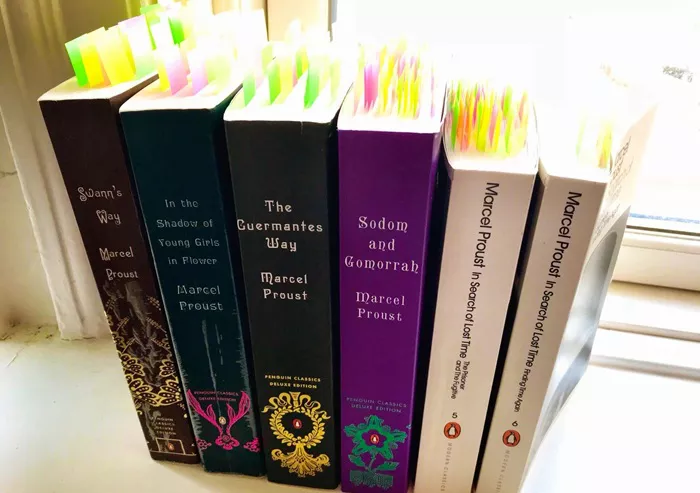Long novels often intimidate readers, but few can match the sheer scale of Marcel Proust’s 20th-century masterpiece, In Search of Lost Time (À la recherche du temps perdu), which holds the distinction as the world’s longest novel.
Originally published in 1913, Proust’s work spans 13 volumes and approximately 9.6 million characters — including letters, spaces, and punctuation. To put this into perspective, the average novel contains around 350,000 to 400,000 characters. This means In Search of Lost Time is nearly 24 times longer than a typical book, earning it a place in the Guinness World Records.
By comparison, Stephen King’s IT, often cited as a lengthy read, comprises just over 1,100 pages. Proust’s work, on the other hand, comprises roughly 3,700 pages in some editions, including extensive endnotes.
Proust’s first volume was released in 1912, with the subsequent volumes cementing his reputation as one of the most influential literary figures of the 20th century. The second volume’s critical acclaim propelled him to international fame.
For readers contemplating tackling this monumental novel, the time commitment is substantial. An average reader who reads 300 words per minute would require over three days of continuous reading to finish the entire work. However, many readers report taking a year or more to complete it.
One Reddit user shared their experience, stating, “Proust had been on my literary bucket list for nearly 20 years and last year I finally decided to tackle it. My edition is about 3,700 pages including the endnotes. It took me just over a year to read it all (about 10 pages per day). There were countless beautiful passages and incredible insights… But it was also mind-numbingly slow for hundreds of pages at a time, especially volumes 4-6.”
They added, “It’s a book like no other. I believe it changed me to a certain extent, and it definitely felt good to finally cross it off my list. But if I step back and really think about it, I can’t say that it was worth it. For others who have finished it, what did you think? Am I the only one who wouldn’t recommend it to someone else?”
Other readers expressed contrasting views. One admirer commented, “I love In Search of Lost Time like a friend and it is never far from my mind,” while another reflected, “I loved reading it. It took me a long time, but I enjoyed every minute of it. I read it in French, though, and I know that translations can sometimes make books uninteresting.”
As readers continue to grapple with this literary giant, In Search of Lost Time remains a benchmark for endurance and profound literary exploration.

